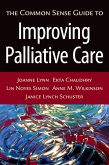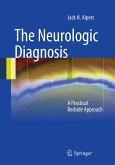The Common Sense Guide to Dementia for Clinicians and Caregivers provides an easy-to-read, practical, and thoughtful approach to dementia care. Written by two specialists who have cared for thousands of patients with dementia and their families, this ground-breaking title unifies the perspectives of neurology and psychiatry to meet a variety of caregiver needs. It spotlights many real-world concerns not typically covered in standard textbooks, while simultaneously presenting a more detailed medical perspective than typical caregiver manuals. This handy title offers expert guidance for the clinical management of dementia and compassionate support of patients and families. Designed to enhance the physician-caregiver interaction and liberally illustrated with case examples, The Common Sense Guide espouses general principles of dementia care that apply across the stages and spectrum of this illness, including non-Alzheimer's types of dementia, in addition to Alzheimer's disease. Clinicians, family members, and other caregivers will find this volume useful from the moment that symptoms of dementia emerge. The authors place an emphasis on caring for the caregiver as well as the patient. Essential topics include how to find the right clinician, make the most of a doctor's visit, and avert a crisis - or manage one that can't be avoided. Sometimes difficult considerations, such as driving, financial management, legal matters, long-term placement, and end-of-life care, are faced head-on. Tried, true, and time-saving tips are explained in terms of what works - and what doesn't - with regard to clinical evaluation, medications, behavioral measures, and alternate therapies. Medical, nursing, and allied health care professionals will undoubtedly turn to this unique overview as a vital resource and mainstay of clinical dementia care, as well as a valuable recommendation for family caregivers.
Dieser Download kann aus rechtlichen Gründen nur mit Rechnungsadresse in A, B, BG, CY, CZ, D, DK, EW, E, FIN, F, GR, HR, H, IRL, I, LT, L, LR, M, NL, PL, P, R, S, SLO, SK ausgeliefert werden.









